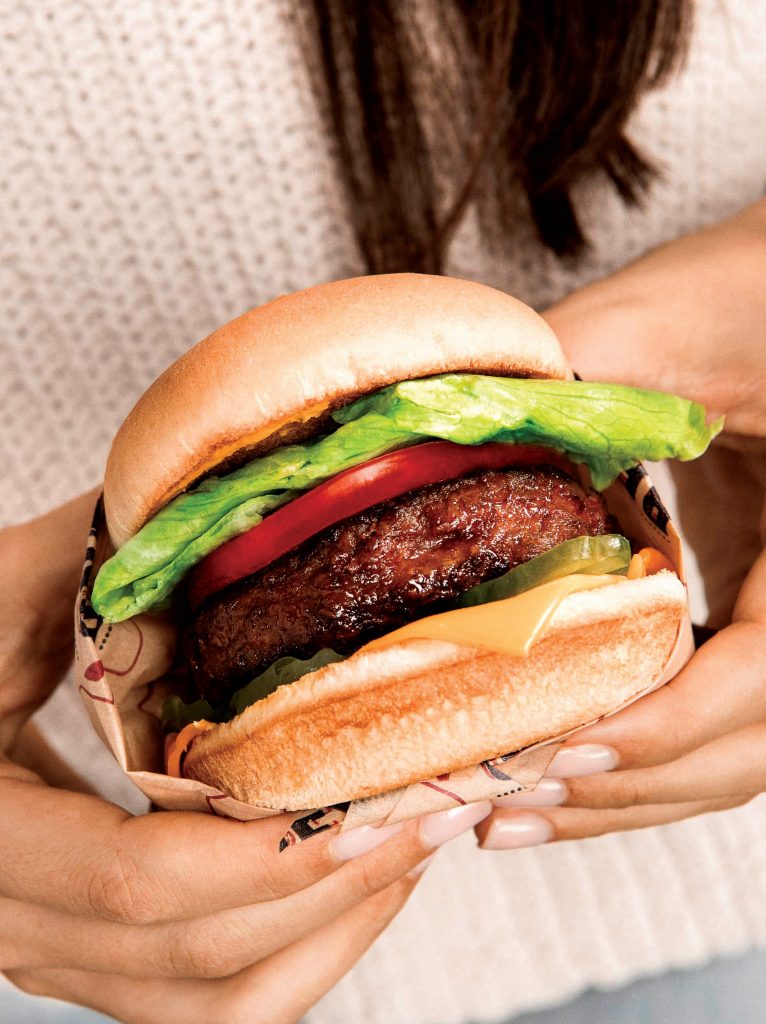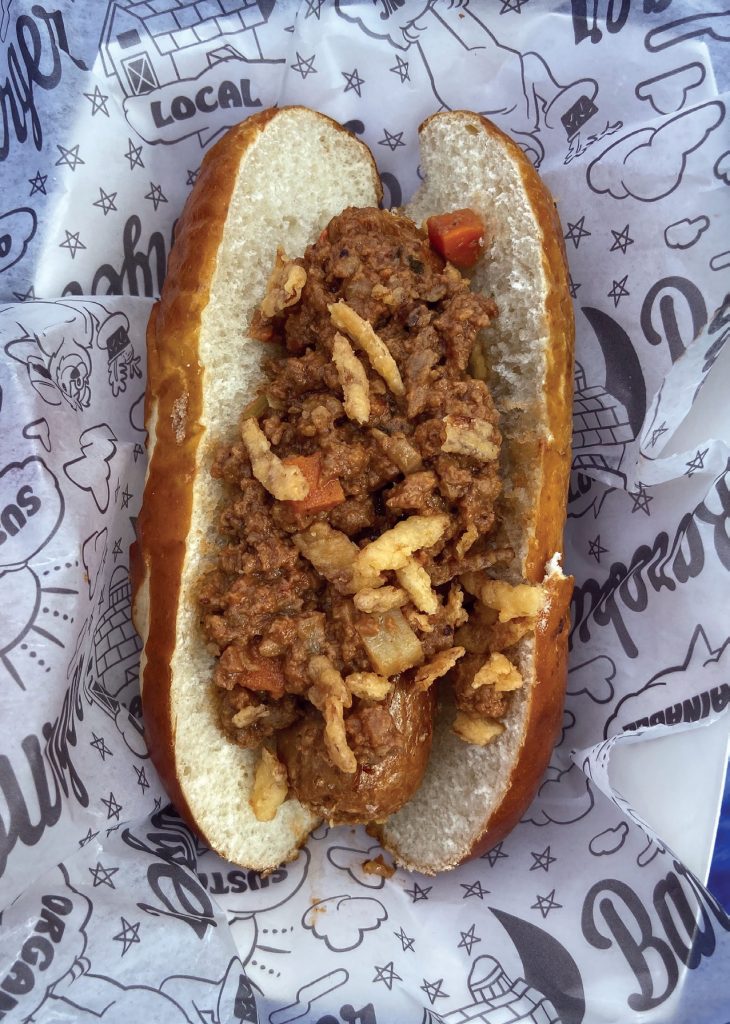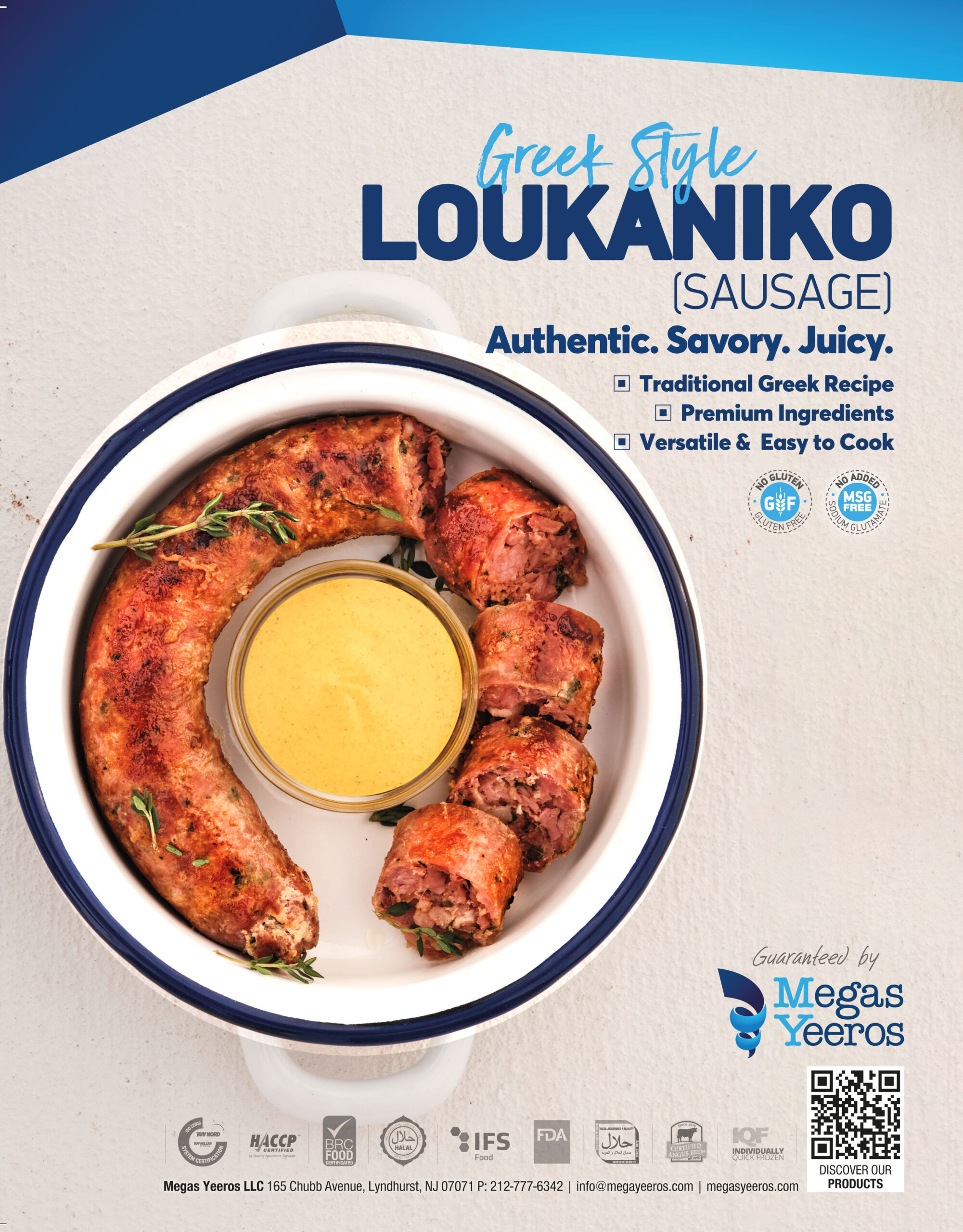The Plant-Based Revolution Has Arrived
Posted by estiator at 7 November, at 07 : 28 AM Print
COVER STORY
Get to know this emerging trend that seems here to stay.
By Maria Benardis

ACCORDING TO INDUSTRY experts, plant-based foods have become so popular that they are a growth engine helping to drive the entire food industry. Supermarkets like Whole Foods Market devote an increasing amount of shelf space to plant-based alternatives for meats and dairy, while consumers who have embraced plant-based diets (either exclusively or as an occasional part of their diet) are beginning to look to their restaurants to keep pace with the trends. The recent introduction by Burger King and others of a plant-based burger is a sign of the times, as the percentage of vegans grows in the population, and even as omnivores elect to limit their amount of animal protein consumption. Estiator looks at the movement and explores some of the plant-based meat alternatives so readers can decide whether the trend is something to tap into.
September is a time for outdoor festivals in New York City, and on the 28th of the month, area enthusiasts packed Vegandale, one of the largest festivals for vegans in the U.S. (It’s also held in Toronto, Chicago, Miami, and Houston.) More than 85,000 people attend those events, with more locations planned nationwide. Not surprising, the lines for food samples (particularly for plant-based meat alternatives) were extremely long. I waited 20 minutes in line to taste a plant-based gyro and nearly as long for a plant-based sausage from a stand sponsored by BareBurger, a regional burger chain owned by a group of Greek-Cypriot Americans.
In my own kitchen, I have cooked with both the Impossible Burger and Beyond Burger products. Beyond Burger’s hamburger patty is, in fact, difficult to distinguish from the real thing. Delicious, flavorful, and with a texture, look, and feel that’s a match for the real meat version, it satisfies burger cravings. And although Beyond Burger omits GMOs and soy products, label fanatics may find concern with a few ingredients that make it into the product (expeller-pressed canola oil, acetic acid, methylcellulose, and maltodextrin among them).
The Trend Is Your Friend
If the notion of eating an imitation meat burger strikes you as ridiculous, think again. Last July, New York-based market research giant NDP Group reported that there were 228 million servings of veggie burgers and veggie sandwiches ordered at quick-service restaurants in the 12-month period ending May 2019—up a whopping 10 percent from the previous year. And while the number is dwarfed by the 6.4 billion beef burgers ordered, the strong year-over-year growth of plant-based burgers is not something to be ignored. The growth, it turns out, is primarily due to increased availability of meat-alternatives at major fast-food chains. And to understand how plant-based meals are moving beyond the (substantial) vegan population, consider this: 95 percent of consumers that purchased a plant-based burger last year have also purchased a traditional burger made from beef. With all the buzz surrounding the popularity of plant-based burgers, trendwatchers and experts are pondering whether veggie burgers are closing in on beef burgers among the general population or if the growth of plant-based burgers corresponds to an increase in vegetarianism or veganism.
The report also noted that a larger percentage of the overall adult population, 18 percent, is trying to get more plant-based foods into their diets. The popularity of plantbased foods is being fueled by consumers’ desire to consume more protein (60 percent, according to NDP), concerns for animal welfare and how meat products are brought to market, sustainability, and what consumers perceive to be healthier nutrition.
“They get the ‘burger’ experience while assuaging their need for more protein and social concerns,” says Darren Seifer, NPD’s food and beverage industry analyst. “With that said, U.S. consumers have not given up on beef burgers but are willing to mix things up every now and then.”

The shift toward plant based meat alternatives goes well beyond Burger King’s highly publicized foray into the category. Recently, national chain Carl’s Jr. debuted the meat-free Beyond Burger at 1,000 locations, and White Castle’s Impossible Slider is produced by Impossible Burger. Burger King’s Impossible Whopper launched in early August, with locations seeing traffic outperform national averages by 18.5% in its debut month, prompting the restaurant’s head of North America, Chris Finazzo, to state that the Impossible Whopper is drawing a new and different kind of customer to its stores.
Traditional meat processors such as Tyson Foods, famed for Jimmy Dean pork sausages and chicken nuggets, have also placed wagers by investing or taking ownership positions in plant-based start-ups. And fast-food giants Del Taco, Kentucky Fried Chicken, Dunkin Donuts, and McDonald’s are also adding vegan and vegetarian options to their menus, taking care to advertise them as plant-based. Bareburger, with more than 34 locations in New York, New Jersey, and Connecticut, was among the early adopters, serving plant-based burgers and bacon made from tempeh. Bareburger was, in fact, one of the first to embrace and offer the Impossible Burger on its menu. It currently offers burgers produced by both Impossible Burger and Beyond Meat. To accommodate these additions, Bareburger has gone so far as to remove burgers made from elk and boar.
Sustainability
In 2018, the Center for Sustainable Systems of the University of Michigan, conducted a study that quantified the environmental impact of the production of the Beyond Burger and found that from a sustainability standpoint, it produced a significantly lighter environmental footprint than the production of a traditional beef burger. Compared to a quarter-pound U.S. beef burger, producing a Beyond Burger patty of the same weight requires 99% less water and 93% less land, while it produces 90% fewer greenhouse gas emissions and consumes nearly 50% less energy.
According to the Greenhouse Gas Protocol, “Hamburgers may have won America’s beef-besmitten heart, but their resource-laden production demands are tough on the planet’s ever-increasing population. Production of a single beef patty requires nearly 7 pounds of grain, 53 gallons of water, a sprawling chunk of pastureland and a whole lot of fossil fuels.”
Health Considerations
A vegan with high cholesterol sounds almost as unreal as a hamburger without meat. However, they both exist. Research shows that red meat has been linked with numerous health risks. The Mediterranean diet, hailed as one of the healthiest in the world, is based on minimal consumption of red meat. And while these plant-based alternatives aren’t considered a component of the Mediterranean diet, they could help people reduce red meat consumption.
Many in the medical profession, however, have mixed feelings about whether or not these products should be viewed as “healthy.” Some are concerned with the inclusion of genetically modified ingredients (such as soy) and others with high levels of saturated fats and amino acids. (The Impossible Burger contains 40% of the recommended daily intake of saturated fat while the Beyond Burger fairs slightly better at 30%.)
Beyond Burger
Founded in 2009, Beyond Meat is one of the fastest-growing food companies in the United States, offering a portfolio of revolutionary plant-based meats. The company’s flagship product, the Beyond Burger, is made entirely from plants, without GMOs, soy, or gluten. To replicate the experience of biting into a traditional beef burger, the company uses beetroot to mimic the natural bleeding that occurs when biting into a medium-rare burger. “The new Beyond Burger is the next step in our journey toward building meat directly from plants that delivers a consumer experience indistinguishable from its animal protein equivalent,” says Ethan Brown, Beyond Meat founder and CEO.
Since their debut in 2016, more than 25 million Beyond Burgers have been sold. They’re available in the meat case at more than 12,000 grocery stores, on the menu at more than 11,000 restaurants, including TGI Fridays, Epic Burger, and A&W Canada. Beyond Meat’s fresh and frozen plantbased proteins, which include a plant-based burger as well as ground plant-based beef and sausage, are sold at more than 30,000 retail and foodservice outlets worldwide, such as Whole Foods Market, Kroger, Lowes, Stop & Shop, and Wegmans.
Impossible Burger
Impossible Foods, founded in 2011 by Patrick Brown, formerly a biochemistry professor and Howard Hughes Medical Institute investigator at Stanford University, is a privately held company that has backing from both Bill Gates and Google Ventures. Americans have consumed more than 13 million of the company’s Impossible Burgers in the last three years. Thanks to strong demand from restaurants—and pent-up demand from home chefs—Impossible Foods believes it is on track to eliminate the need for animals as a food production technology by 2035.
Last January the company launched its Impossible Burger “2.0” which contains no gluten, no cholesterol and has 14 grams of total fat in a quarter-pound patty. The company claims it delivers as much bioavailable iron and protein as conventional beef protein from cows. And it’s kosher- and halal-certified.
The burger can be found in more than 200 U.S. restaurants, and the rollout continues to thousands more. The previous version of the burger was available in about 5,000 restaurants (and in all 50 states), including Hurricane Grill & Wings, Wahlburgers, and B Spot (owned by Chef Michael Symon). It’s also in many supermarkets, including Gelson’s Markets, Wegmans, and Fairway Market.
According to reports, investors are “clamoring” to buy into the company ahead of an anticipated IPO. According to the company’s reports, its second quarter revenues for 2019 were up 287% year-over-year.
Eleni’s Modern Mediterranean
But beyond these burgers, many companies are getting in on the wave of demand for plant-based products, including Eleni’s Modern Mediterranean. Eleni’s, a division of gyro producer Devanco Foods, offers a number of plantbased alternatives, including plant-based gyro, tzatziki, and shawarma, along with falafel. President/CEO Peter Bartzis indicates that the division’s latest offering is his company’s own plant-based burger, with “more exciting plant-based meat products to be added shortly.”
“Vegans are not big fans of plant-based meats pretending to be real meat,” says Bartzis. “They don’t like that,” he says, reluctantly.
The fact that companies such as Tyson and McDonald’s are adding plant-based options to their offerings, confirms that there will be an overall shift toward plant-based diets in the future, says Bartzis. “With the world population growth, Tyson Foods admits that they cannot keep up with the demand of meat from their consumers,” he says, indicating that the environment itself will not be able to sustain the demands of traditional animal protein production if this shift does not occur.
The shift toward plant-based meat alternatives goes well beyond Burger King’s highly publicized foray into the category.
Like most innovators, Bartzis looks to the future and, as such, his Eleni’s line is looking to grow its plant-based portfolio by “continuously improving all our products, such as cleaning out all GMO’s, nitrates, etc. and replacing them with natural and healthier alternatives such as celery salt and other natural ingredients. Clean labels make our plantbased alternatives even healthier,” he says.
Bartzis is optimistic about the future of Greekowned eating establishments adding plant-based alternatives to their menu. It is becoming a necessity to stay ahead of the competition and to satisfy the new growth of plant-based consumers, he says. “For independent operators, this is an opportunity that will attract new clientele and add to their bottom line.”
Bartzis’s daughter Madeline, a pescatarian who recently received a BS in Nutritional Sciences and is now pursuing her master’s degree at Rutger’s University, says that plantbased is the future of food. “Economically, meat is not sustainable, and with the majority of chronic illnesses being linked to diet and lifestyle habits, there is a need for preventative measures. Plant-based is a solution,” she says. More and more consumers agree.
















